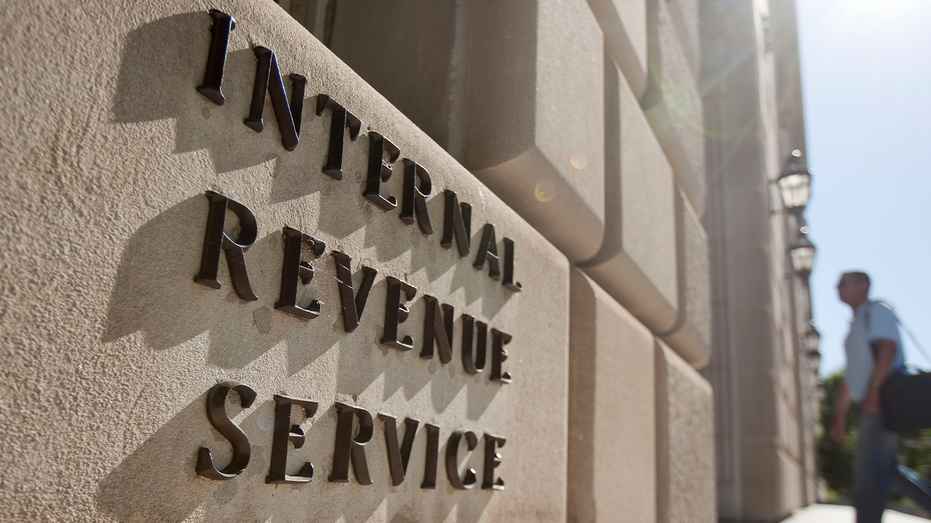Biden pitches revamped millionaires tax, global minimum to fund $1.75T spending bill
Tensions grow between progressive and moderate Dems over spending plan
Fox News congressional correspondent Chad Pergram reports on the Democrat Party’s divide over specifics of the bill.
The Biden administration on Thursday outlined a revamped tax-hike plan to pay for Democrats' roughly $1.75 trillion spending plan, including rate increases on well-off corporations and wealthy Americans.
The latest framework – which President Biden will detail to House Democrats at the Capitol – comes amid fierce party infighting over how to finance the social spending package.
Although the White House initially proposed steep increases in corporate taxes, capital gains taxes and income taxes, the bulk of those plans appear to have fallen to the wayside after pushback from Sen. Kyrsten Sinema, D-Ariz. The majority of former President Donald Trump's signature 2017 tax law, which substantially lowered rates for corporations and well-off Americans, will likely remain intact in the newest Build Back Better plan.
WASHINGTON, DC – OCTOBER 28: (L-R) President Joe Biden and Speaker of the House Nancy Pelosi leave a meeting with House Democrats at the U.S. Capitol on Capitol Hill October 28, 2021 in Washington, DC. (Photo by Drew Angerer/Getty Images) (Photo by Drew Angerer/Getty Images) "The plan is more than fully paid for by asking the wealthiest Americans and most profitable corporations to pay their fair share. It does not raise taxes on small business and anyone making less than $400,000 per year," the White House said in a fact sheet. "It will also generate economic growth that will increase tax revenue and contribute to deficit reduction." Here's a closer look at how Biden wants to pay for the plan, which includes funding for universal pre-kindergarten, a one-year expansion of the child tax credit, a modified Medicaid expansion and clean energy tax credits, among other things. The White House estimated the different pay-fors will generate close to $2 trillion in new revenue over the next decade, although the proposal has not officially been scored by the Congressional Budget Office. BIDEN TO ANNOUNCE RECONCILIATION BILL FRAMEWORK BEFORE JETTING TO EUROPE: LIVE UPDATES The new rate would impose a 15% minimum on corporations based on profits they report to shareholders, a tax that would only apply to companies that reported over $1 billion in income for three straight years. Senate Democrats estimated earlier this week that the new tax would apply to about 200 companies. Biden called for a 1% surcharge on stock buybacks to deter companies from repurchasing their own stock from investors and spur businesses to put that money toward long-term investments, such as hiring and wage increases. Secretary of State Antony Blinken, left, speaks during a closing session at the Organization for Economic Cooperation and Development’s Ministerial Council Meeting, Wednesday, Oct. 6, 2021, in Paris. (AP Photo/Patrick Semansky, Pool) (AP Photo/Patrick Semansky, Pool / AP Newsroom) Stock buybacks have become a frequent bipartisan target on Capitol Hill in recent years,` as corporations use capital to reduce the number of outstanding shares by reabsorbing them, thereby increasing the earnings per share of the company, rather than growing the company or funneling it back to employees. The proposal calls for a 15% global minimum tax, which would apply to companies' overseas earnings. Global leaders from 136 countries and jurisdictions reached a deal earlier this month for a global minimum of 15%. The framework would also impose a penalty on foreign corporations based in countries that do not enforce the minimum tax rate. The new surtax would place a 5% levy on incomes above $10 million and an additional 3% on incomes above $25 million, on top of the top tax rate, which is currently 37%. About 0.02% of Americans would be affected, according to the White House. Biden has called for a new surtax on multimillionaires and billionaires, pitching a 5% rate on individuals with income above $10 million. That rate would climb to 8% for individuals with income above $25 million – in addition to the current top individual income tax rate of 37%. GET FOX BUSINESS ON THE GO BY CLICKING HERE The White House estimated it would affect about 0.02% of taxpayers. The Build Back Better plan would close provisions in the tax code that allow some wealthy taxpayers to avoid paying the 3.8% Medicare surtax on their earnings by strengthening a net investment income tax for anyone earning more than $400,000. A man enters the Internal Revenue Service (IRS) building in Washington, D.C., U.S., on Friday, May 7, 2010. Photographer: Andrew Harrer/Bloomberg via Getty Images (Andrew Harrer/Bloomberg / Getty Images) In order to crack down on wealthy tax cheats, the IRS would receive more funding to hire more enforcement agents, modernized outdated technology and invest in taxpayer services. The White House said the additional enforcement resources will be directed toward Americans with income above $400,000. Biden wants to repeal a Trump-era ban on prescription drug rebates, which the White House said would have increased seniors' drug premiums. Biden called for a continued limitation on "excess business losses." Under current law, non-corporate taxpayers, including partnerships, LLCs, "S" corporations and pass-through entities, are subject to a limitation for "excess business losses" – the amount by which the total deductions attributable to all of a taxpayer's trades or businesses exceed total gross income and gains attributable to those trades or businesses plus $250,000 (or $500,000 in the case of a joint return). Although the Trump administration temporarily removed the excess boss limitation for 2018, 2019 and 2020 as part of the CARES Act, it returned in 2021 and is in effect through 2026. Source: Read Full Article15% Corporate Minimum Tax ($325 billion)
Stock Buybacks Tax ($125 billion)
Stronger International Tax Rules ($350 billion)
Millionaires Surtax ($230 billion)
Close Medicare Tax Loophole for Wealthy ($250 billion)
Stronger IRS Enforcement ($400 billion)
Repeal Prescription Drug Rebate Rule ($145 billion)
Limit Business Losses ($170 billion)



